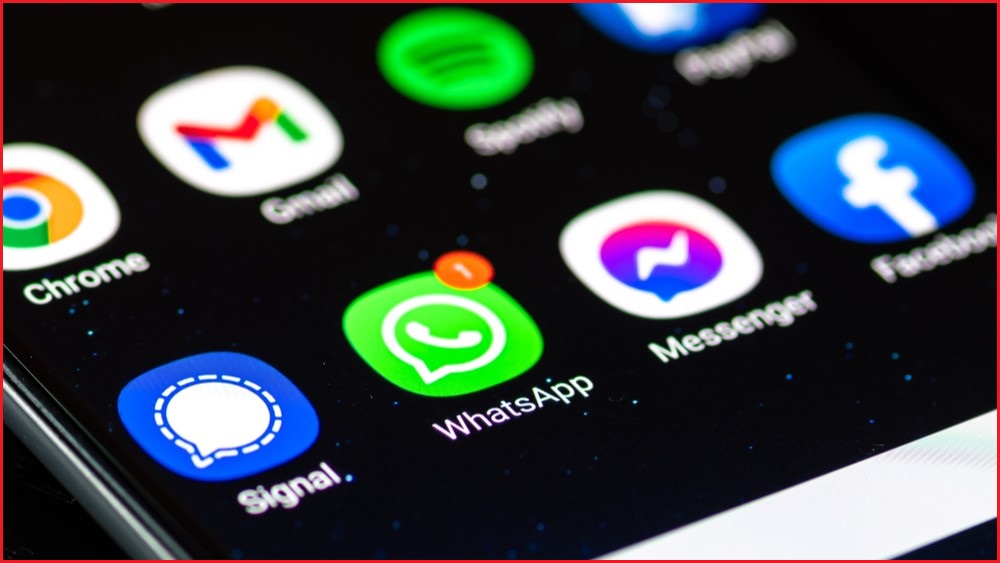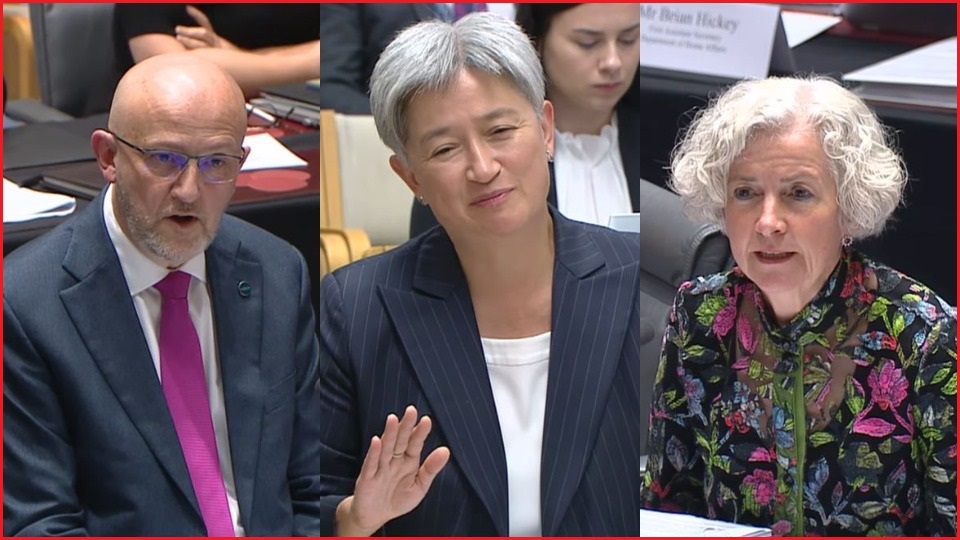An Australian government minister and prominent public servants have confirmed their use of Signal and its disappearing messages feature after a major security lapse among US government officials using the encrypted messaging app.
High-ranking members of the US government and its defence department leaked details of Middle East operations to a journalist earlier this month after they accidentally added the reporter to a Signal group chat.
Confirmation of Australian officials’ use of Signal — including Foreign Affairs Minister Penny Wong and intelligence chief Mike Burgess — comes after Australia’s information commissioner found government workers were sometimes using messaging apps without proper policies to comply with privacy, archiving, and freedom of information (FOI) laws.
Wong confirmed she used Signal for work but did not provide a response when asked if Prime Minister Anthony Albanese also used it, following questions from Queensland senator James McGrath during Senate Estimates on Thursday.
Burgess, the director-general of Australia’s intelligence agency ASIO, confirmed he sometimes used Signal to communicate with ministers and at times utilised a feature of the app which deleted messages after a set period — a capability also available in the likes of Meta's WhatsApp and Facebook Messenger.
While he confirmed ASIO did not have a policy regarding disappearing messages, Burgess said agency workers could not use messaging apps for decision making.
“We don’t make decisions via Signal, but of course I have a notebook and every time I’m having a conversation with a minister I have an official note of, ‘I had a conversation,’” he said.
“So there’s a record that we ping, but generally it’s a ‘Can you meet me for this?’, or ‘I’m going to be late’, or ‘A staff member is coming to the meeting, not me.'"
Burgess said he did not use Signal to share classified information, as ASIO’s policies only allowed the app to carry information categorised as ‘Sensitive’.
The Australian government has four levels of information security clearance: Sensitive, Protected, Secret, and Top Secret.
Foreign governments potentially attempting to gain access to information on Signal was “very much” the rationale for not sharing classified information on the platform, Burgess said.
Home Affairs confirms use of disappearing messages
Home Affairs secretary Stephanie Foster confirmed she also used Signal for some work purposes, including the app’s disappearing messages feature, following questions from Greens senator David Shoebridge on Thursday.
“Should I have a message that needs to be retained, then I absolutely know what my obligations are, and I know how to retain that,” she told the estimates hearing.
Foster said she also used WhatsApp, Apple’s iMessage, and standard SMS messages for work purposes.

Australia's information commissioner says some government entities do not have policies for the use of messaging apps. Image: Shutterstock
Home Affairs’ chief operating officer, Charlotte Tressler, said the department had accredited Signal for use through work accounts on work phones, for information up to the ‘Protected' level of security.
While Home Affairs did not ban disappearing messages, it had specific guidance for Signal and its workers needed to be aware of their obligations to record-keeping, privacy, and FOI requests, she said.
“One of the very first things you’ll read in our policy guidance is any decision that is made must be captured in accordance with our record-keeping,” Tressler said.
Foster said she was aware of the information commissioner’s report into messaging app guidelines and her department was looking at its recommendations “to see if we can strengthen our policies and practices”.
The secretary of the Attorney-General's department, Katherine Jones, told the hearing she also used Signal and its disappearing messages feature.
Jones said she complied with her employer’s record-keeping obligations, but the department would also review its information management policies in light of the information commissioner's report.
The commissioner found while 16 of the 22 government entities which responded to a survey allowed staff to use messaging apps for work purposes, only eight of those had policies governing the use of such apps.
‘No reason to doubt’ US information security
ASIO’s Mike Burgess said the incident involving US defence officials’ use of Signal was “a reminder to us all” that Australian agencies had policies in place and should only put classified information on “appropriate systems”.
He added he did not have concerns about the security of sensitive Australian information which may be held by US officials.
“I would engage with a foreign partner if I saw our classified information shared or handled in an inappropriate way,” he said.
“Beyond that, despite this one incident, I’ve got no reason to doubt that our US colleagues will protect our information accordingly.”
Given how reckless the US administration are being with their own National Security information how can we have confidence that info we share with them is safe?
— David Shoebridge (@DavidShoebridge) March 27, 2025
The ASIO Director General is confident, I've got to say I don't share his optimism! pic.twitter.com/tyI0Cz4r9v
In a statement released in the wake of the US defence mishap and US President Donald Trump’s suggestion that Signal "could be defective", the app’s creators said the platform was “the gold standard for private, secure communications”.
There has been no evidence to suggest an issue with Signal caused US officials to add The Atlantic editor-in-chief Jeffrey Goldberg to their group chat.










